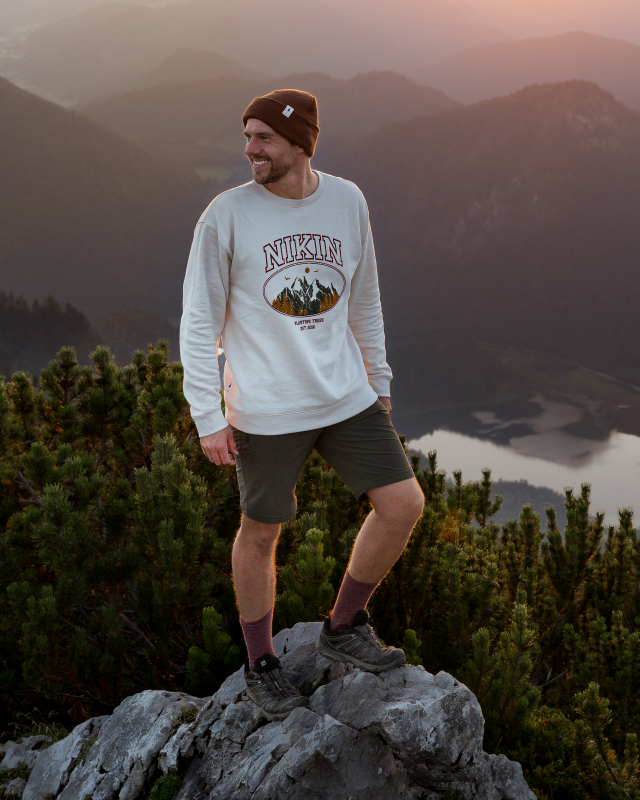Uncover the secrets of Switzerland's waterways and find out why this stunning country is known as the ‘Water Castle of Europe’.
Uncover the secrets of Switzerland's waterways and find out why this stunning country is known as the ‘Water Castle of Europe’.

True to the country's image, Switzerland is often associated with banks, chocolate, watches and mountains. Yet the country is characterised at least as much by its diverse streams, rivers and lakes as by the mountains that are always within reach. On the southern edge of the Jura chain (running from northwest to northeast), the Aargau towns of Brugg, Windisch, Gebenstorf, Turgi, Stilli and Untersiggenthal form a veritable triangle - the three largest Swiss Alpine rivers, the Limmat, Aare and Reuss, come together here. This is why this area is known as the "water castle of Switzerland". Hundreds of smaller and larger rivers meander through the various regions of Switzerland and provide a multitude of lakes and a healthy water balance.

Swiss lakes and their origins
Most lakes in Switzerland are of natural origin. They are often fed by melt water from glaciers and owe their intense blue-green colour, which makes the mountain lakes in particular look like a piece of heaven in the middle of the landscape. Other lakes use existing basins that are filled and continuously fed by rivers. In Switzerland, these also ultimately draw a lot of water from the glaciers - or from the melting snow. The largest lakes, such as Lake Geneva and Lake Zurich, have such an origin. For the water quality, it is important that a river crosses the lake it feeds - where there is only an inflow but no outflow, the water gradually becomes saline over thousands of years.
Lakes create habitats
In Switzerland, lakes are not only important reservoirs for clear, high-quality freshwater. They regulate the groundwater and surface water levels and provide specific biotopes for animals and plants in their surroundings. In the lake itself, aquatic plants, fish, water birds and insects thrive, but mammals also find resting and hunting grounds in the reeds on the lakeshore. Transition zones, also known as wetlands, form at the edge of lakes. This is where land and water meet and thus also amphibious creatures and plants. For all of them, a lake is more than just a source of water to quench their thirst - the entire rhythm of life of the creatures in and around the lake adjusts to the water.

This is what makes lakes so important for nature and people - not to mention the fact that we humans find spending time by the water soothing and calming. This is why many lakes in Switzerland are already protected; worldwide, one would wish that even more water areas enjoy consistent protection requirements. After all, water as a resource is finite, precious and indispensable for life on earth.
The most famous lakes in Switzerland
Every traveller to Switzerland knows Lake Zurich - the lake is not only a landmark of the city, but also a recreational oasis for the people of Zurich, who use its shores for strolling, swimming or sunbathing in summer and winter. Lake Geneva, which is shared by France and Switzerland, is similarly famous. It is the largest inland body of water in both countries. Typical of Lake Geneva is the crescent-shaped silhouette and the panorama of the lake shores, which combine the Alps in the background with the vineyards in the foreground.
But Lake Lucerne is also a popular destination, not only for Swiss people, because here you can enjoy wild, romantic nature with real fjords, the likes of which cannot be found on Lake Geneva or Lake Zurich. The surrounding mountains slope steeply down to the lake, and typical Swiss villages in five cantons invite you to linger on the shores.

Among the smaller lakes, there are indeed many glacial lakes whose waters are breathtakingly cold all year round. However, the sight is at least as breathtaking when you see Lake Blausee, Lake Cauma or Lac Lioson in front of you for the first time. In fact, there are numerous hiking tours reserved especially for Switzerland's rivers and lakes.
Leisure by the lake in Switzerland
There is a lot to experience on and in the water. Quiet mountain lakes, where you can camp on the shore, will not let you go. In the larger inland waters of Switzerland, you can also swim in summer, and the entire range of "nautical" leisure activities is available near the city. These range from beach volleyball to pedalos and stand-up paddles to sleek yachts anchored off Geneva and Zurich. Those who prefer a more leisurely pace can hire a rowing boat to discover one of Switzerland's many lakes - or go kayaking on the country's torrents.

Summer isn't over yet - enjoy the remaining summer days at your favourite water spot with our Swim Collections!
Which is your favourite water and why? Let us know in the comments!




















